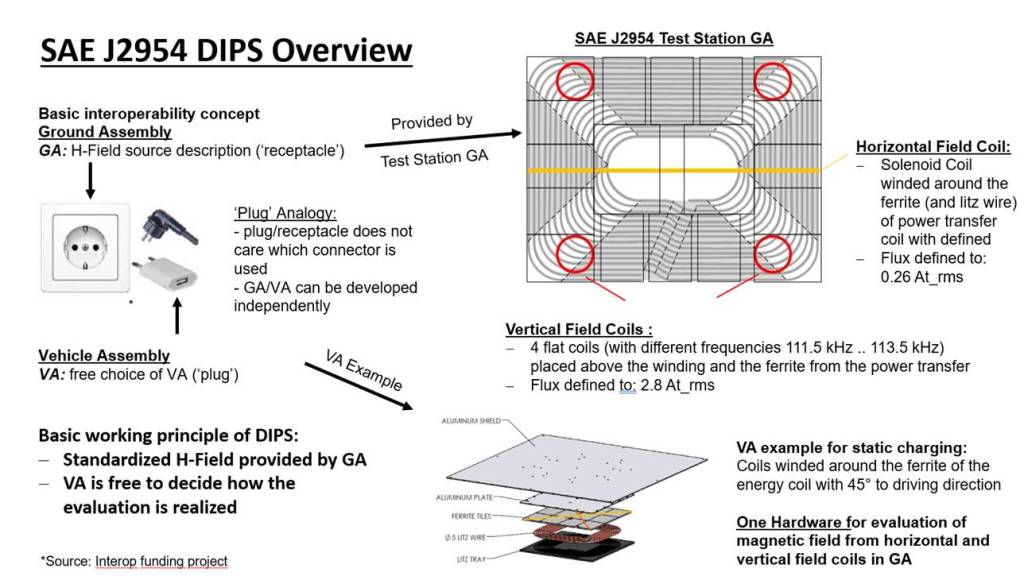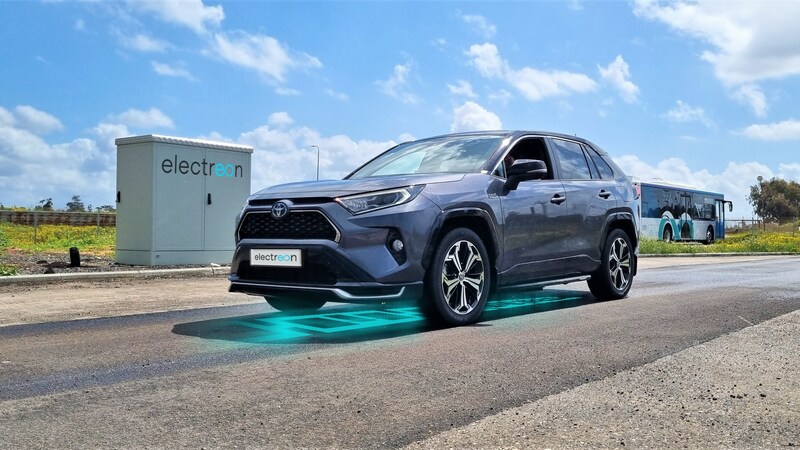SAE International finalized methodology this past week for an important hardware component of EV wireless charging systems.
The organization announced a single wireless charging standard—officially J2954—in 2020. As part of the finalization process of that standard, the organization has settled on a methodology for hardware that aligns charging receivers located on vehicles with transmitters located on the ground or a garage floor in all conditions, and that can be interoperable with different hardware.
Such an alignment methodology is the “missing piece” of standardization of wireless charging, according to SAE International, and an important piece toward reaching the 93% efficiency that’s claimed to be achievable across components given the J2954 standard.

Differential Inductive Positioning System component of SAE J954 wireless-charging standard
SAE International chose what it calls the “Differential Inductive Positioning System” (DIPS). It uses four flat coils and a separate magnetic field that’s used solely for alignment (as opposed to actual charging).
With this, vehicle parking systems should be able to help position the vehicle perfectly for wireless charging, or potentially do everything automatically.
Wireless charging matters for EVs as it eliminates the mandatory touch points at home. You simply park in the same spot in the garage each night and that’s it. Surveys commissions by the industry behind wireless charging suggest that EV shoppers want it, far more than some other tech like self-driving capability.

Toyota RAV4 Prime – Electreon dynamic wireless charging
Yet not much has happened to commercialize the tech quite yet—primarily because it carries a high price tag and requires not just the vehicle equipment, but home equipment and installation. Some aftermarket systems are available but, very few models globally have implemented wireless charging as of yet. The Genesis GV60, on a limited basis, offered it in its home South Korea.
Other automakers are showing interest though. Tesla seemingly purchased a German wireless-charging firm earlier this year. Toyota sees the tech as potentially enabling smaller batteries, and is currently testing the idea.

